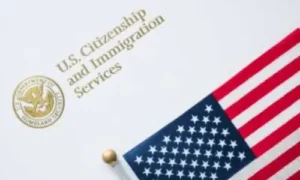Concerned about immigration issues following President Donald Trump's re-election? Click Here
 Immigrating to the United States is a dream for many people around the world. However, the immigration process can be long and complicated. One of the options for immigrants to obtain a Green Card is consular processing. This process involves applying for an immigrant visa and Green Card through the U.S. embassy or consulate in a person’s home country. There are several options for obtaining authorization to enter the United States and live in the country permanently through consular processing, including:
Immigrating to the United States is a dream for many people around the world. However, the immigration process can be long and complicated. One of the options for immigrants to obtain a Green Card is consular processing. This process involves applying for an immigrant visa and Green Card through the U.S. embassy or consulate in a person’s home country. There are several options for obtaining authorization to enter the United States and live in the country permanently through consular processing, including:
Consular processing is frequently used in family-based immigration to the United States. When a U.S. citizen or lawful permanent resident has qualifying family members outside the U.S. who want to come and live in the country, they can submit a petition on behalf of their loved ones. If the petition is approved, the beneficiary can then attend a visa appointment at a U.S. consular office abroad. Consular processing is advantageous because it streamlines the process of obtaining family-based immigration visas for those who are located outside of the United States.
Consular processing may be available in certain employment-based immigration cases in which an immigrant has been sponsored by a U.S. employer. After a visa petition filed by an employer is approved by United States Citizenship and Immigration Services (USCIS), the petition will be sent to the National Visa Center (NVC). When a visa becomes available, the NVC will forward the case to the embassy or consulate in the immigrant’s home country, and an interview will be scheduled.
Consular processing can also be used for different types of visas available to people categorized as “special immigrants.” These include former employees of the U.S. government in countries such as Iraq and Afghanistan or others who have provided aid or assistance to United States organizations or personnel.
Consular processing is also a vital component of the Diversity Immigrant Visa Program. This program provides a chance for individuals from countries that have historically had low rates of immigration to the U.S. to apply for a visa through a lottery. The U.S. government has set aside around 50,000 visas annually for individuals from specific countries that are under-represented in the U.S. immigrant population. Individuals who are selected in the visa lottery process and who meet the eligibility criteria may then use consular processing to receive approval for an immigrant visa.
There are certain options for humanitarian relief that may allow immigrants to obtain a Green Card through consular processing. These programs include special immigrant juvenile visas for children who have been abused, neglected, or abandoned by a parent, as well as visas for certain religious workers and other specific groups. Refugee status may be another option, and refugees who are outside of the U.S. can apply to enter the United States and receive a visa through consular processing.
Individuals who are eligible for family-based visas, employment-based visas, diversity visas, refugee status, humanitarian programs, or other immigration options may be able to use consular processing to receive authorization to enter the United States and obtain a Green Card. It is essential to understand the requirements and eligibility criteria for each program, but with the assistance of an experienced immigration attorney, immigrants and sponsors can navigate the process successfully. At John W. Lawit, LLC, our Grapevine consular processing attorneys can provide effective guidance and legal representation in these cases. To learn more about how we can assist with visa and Green Card applications and related matters, contact us at 214-609-2242.
Sources:
https://www.uscis.gov/green-card/green-card-processes-and-procedures/consular-processing
https://www.ilrc.org/sites/default/files/resources/introduction_to_consular_processing83.pdf